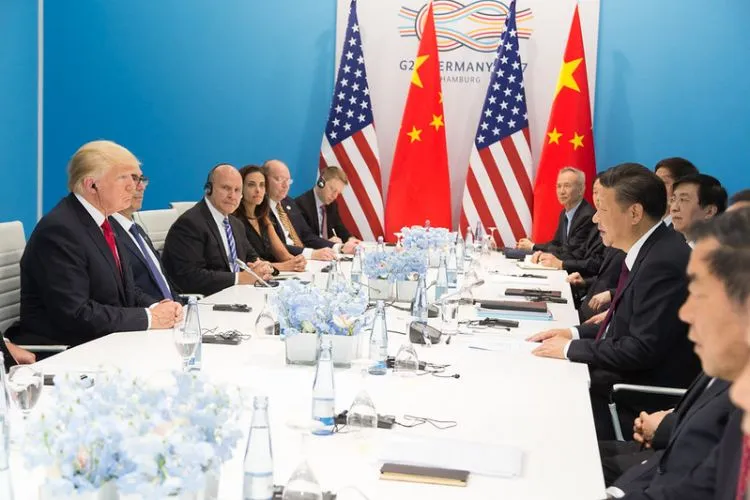Tentative US-China deal heralds trade bonanza for PV polysilicon makers
- The easing of economic tensions between the US and China is set to throw a lifeline to the solar industry, bringing some respite to the sector after years of back-and-forth trade tariffs and levies.

US polysilicon makers will be allowed to export their products to China in greater volumes under the first phase of a trade agreement between the US administration of president Donald Trump and its Chinese counterpart, headed up by president Xi Jinping.
The new deal agreed by both sides – a rapprochement after years of entrenched US-China trade conflict – sees China commit to taking at least US$200 billion more in US exports throughout 2020 and 2021, with 2017’s export figures set as the baseline.
Released this week, the agreement text states this US$200 billion in added US exports will span agriculture, energy, services but also manufactured goods. Within this last category, the document lists “solar-grade polysilicon” among the US products set to be sold to China in greater amounts.
Under a different manufactured goods sub-category – electrical equipment and machinery – the US and China also list “semiconductor devices; photosensitive semiconductor devices, including photovoltaic cells whether or not assembled in modules or made up into panels.”
The exact volumes of US solar goods that China will be accepting in 2020 and 2021 remain unclear but the agreement does specify that across all manufactured goods sub-categories, Beijing will be importing a least US$77.7 billion more over the two-year period.
The lifeline to US polysilicon makers was welcomed by the country’s solar industry – represented by association SEIA, which hailed this week’s deal as a “great development” – but also the manufacturers themselves, including REC Silicon, Hemlock Semiconductors and Wacker Polysilicon.
In a statement, the trio described themselves as the US’ “three remaining” polysilicon makers and thanked President Trump and US negotiators for securing the import concession from China. The hope, Hemlock CEO Mark Bassett said, is that the move will result in a “more level playing field”.
The US-China polysilicon trade spat dates back to the early 2010s, when Beijing moved to slap tariffs on imports from the market – as well as from the EU – even as it heaped subsidies on its own manufacturers.
Over the years, US makers have complained about the impacts of China’s two-pronged protectionist push. REC Silicon links tariffs to its “forced” closure of a US$1.7 billion polysilicon plant in the US, while Wacker has blamed China’s subsidies for a €750 million impairment charge it took last year.
Also read
- MN8 Energy Secures $575M for Solar, Battery Projects
- BNDES Admits Arctech to FINAME, Boosting Solar Trackers Across Brazil
- Huawei, Sungrow Extend Decade-long Lead in Global Inverter Race Again
- TCL Solar Secures 250 MW Pakistan Distribution Deals to Accelerate Growth
- Niteroi Starts Work on 2,700-Panel Solar Park, Boosting Sustainability Drive
